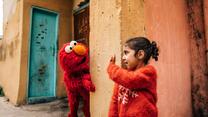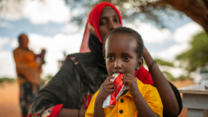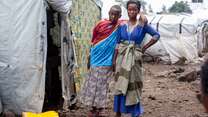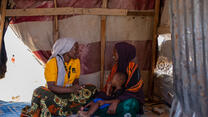The Rapid Access Expansion (RAcE) Program
The International Rescue Committee (IRC) has been implementing the World Health Organization-supported Rapid Access Expansion (RAcE) program in the Tanganyika Province of the Democratic Republic of Congo since September 2013. The main objective of the program is to reduce under-five mortality by expanding integrated community case management (iCCM) through relais communautaire (community health workers). IRC conducted operational research to determine if simplified tools and an improved training curriculum focused on adult learning methodologies and practical exercises could result in faster, better, and lower-cost implementation of iCCM.
Research Methodology
A non-experimental, static group comparison with a non- equivalent control group was employed for the study. Relais fromtwohealthzones(ManonoandKabalo)outofthe11health zones where the project is active were sampled and assigned to one of two arms of the study:
- Arm 1 (Model 1 - control): current MOPH package of training and tools
- Arm 2 (Model 2 - intervention): intervention package of improved training curriculum and simplified pictorial tools
Three outcomes were used to assess the effectiveness of both packages:
- Quality of care: Correctness of assessment and adherence of relais to protocol in treating a sick child at the health center, as measured by direct observation
- Workload: Duration of each evaluation of a sick child including completion of tools
- Cost analysis: Costs program would incur to roll- out each package in one health zone in Tanganyika province with 100 active relais based on actual cost incurred by the program during the study
Key Findings:
- Children were three times more likely to receive correct treatment from relais in the intervention group.
- Relais from the intervention group were five times more likely to correctly investigate all danger/alert signs.
- Relais from the intervention group took less time to complete the observed case.
- Model 2 results in a cost-savings of $4,418 per 100 relais supported during year one of a project. - The costing model assumes 100 relais conducting iCCM in one health zone.



